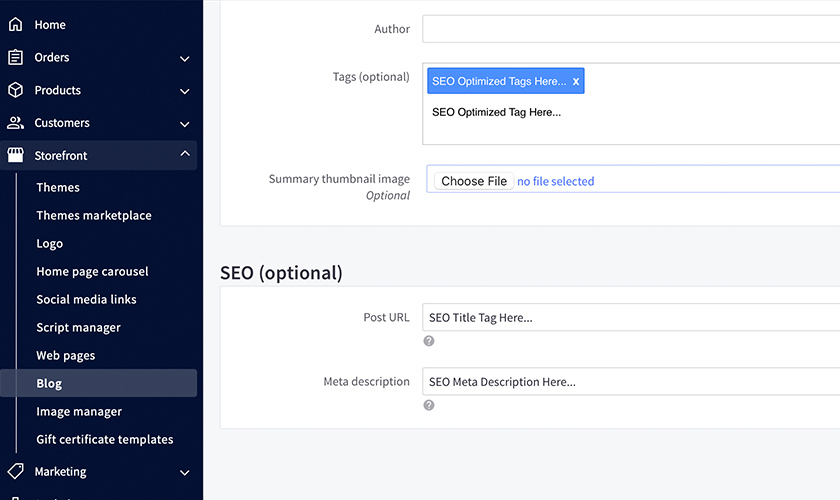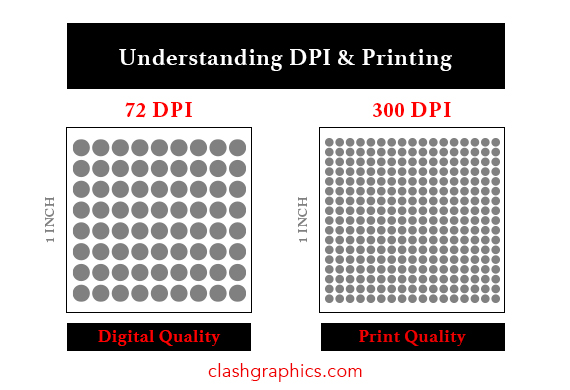How to Make My Business Website
Posted by Clash Printing Atlanta on 12th Nov 2025
Ready to build a business website, but don't know where to begin? This clashgraphics.com step-by-step guide will walk you through the entire process, from defining your site's purpose to launching it online. You'll get all the tools and insights you need to create a professional, compelling website that showcases your business.

Key Takeaways
-
Define your website's purpose to align design and content with business goals, ensuring it effectively raises awareness, facilitates sales, or provides information.
-
Choose a memorable domain name and a reliable web hosting service to establish a strong online identity and ensure website performance.
-
Optimize your website for SEO, mobile devices, and integrate social media platforms to increase visibility, reach, and user engagement.
Establish Your Website's Purpose
Before addressing the technical aspects of creating your website, define its purpose. Why do you want your business to have an online presence? This understanding will guide your web design and content choices, aligning them with your business goals.
Websites primarily serve three main functions: raising awareness, facilitating sales, or providing information. For instance, an e-commerce site focuses on sales, while a portfolio website aims to showcase skills and attract potential clients. Knowing your website's primary goal helps create a website that fits your needs and attracts your target audience.
Remember, the purpose of your own site can evolve. As your business grows, you might need to update your website content or redesign certain elements to reflect a new site or new goals. Staying adaptable and responsive to these changes is key to long-term success.
Choose a Memorable Domain Name
Choosing a memorable domain name is like laying the foundation of your digital identity. In a market flooded with millions of registered domains, a catchy and unique company name can set you apart.
Keep your domain name short, easy to remember, and free of numbers and hyphens to ensure it's easy to type and recall. Brainstorming ideas for a list of 10 to 15 potential names early in the process can be beneficial. This list gives you options to choose from, increasing your chances of finding an available, suitable name.
Before finalizing your custom domain name, check to ensure it's not trademarked or already in use. Consider purchasing variations of your domain name to protect your brand and secure your online presence. This small step can save you from potential legal troubles and brand confusion down the line. Purchase your domain name at Namecheap for cheaper than at GoDaddy.
Select a Reliable Web Hosting Service
Choosing a reliable web hosting service is vital for maintaining your website's performance and accessibility. Your choice should consider budget, uptime guarantees, bandwidth, and storage needs.
These are the few main types of hosting you will likely see and distinctions that set them apart. Shared hosting is like sharing a room with roommates — everyone uses the same space and resources, so it’s cheaper but can get crowded and slow. VPS (Virtual Private Server) hosting is like having your own room in an apartment — you still share a building, but you get your own space and more control. Dedicated hosting is like owning your own house — all the resources are yours, it’s faster and more powerful, but also the most expensive.
A reliable hosting service should provide near-perfect uptime —ideally 99.9% or higher —ensuring your site is always accessible. Various hosting providers offer different features; for example, Bluehost provides strong security features, including free SSL certificates and malware scanning. SiteGround focuses on performance with built-in caching and a free CDN to enhance website speed. WPX is an extremely fast Wordpress host with great support, Bluehost has affordable shared hosting plans, and InMotion is great for VPS or Dedicated server hosting.
Research and compare the specifications and budgets of different plans to find one that fits your business needs. Remember, investing in a reliable hosting service is investing in your website's performance and reliability, which directly impacts the user experience.
Decide on a Website Builder or CMS
Choosing between a website builder and a content management system (CMS) is a critical step in creating your business website. Both options have their strengths, and your choice depends on your specific needs and technical skills.
Website builders are user-friendly tools designed for quick and easy website creation. Many website builders typically offer:
-
No coding skills required, making them ideal for non-technical users
-
Hosting is included in their plans
-
A domain name is included, simplifying the website setup process
Additionally, most website builders feature drag-and-drop editors, making it easy to design your site without any technical expertise.
In contrast, CMS platforms offer greater flexibility and customization options but often require more technical skill. They provide a wider selection of themes and integration options, enhancing your website's functionalities.
If you need a simple and quick solution, a website builder might be the best choice. However, if you seek advanced customization and scalability, a CMS is more suitable. Weigh these options carefully to decide which platform aligns best with your business goals.
Some of the more popular website builder and CMS platforms are Wordpress, Shopify, Wix, and Squarespace.
Plan Your Website Structure

Designing your site structure is akin to drafting a blueprint for your online presence. Start by identifying the essential pages your business website needs in this step-by-step guide:
-
Home
-
About Us
-
Services
-
Products
-
Blog
-
Contact.
Your home page should clearly communicate who you are, what you offer, why visitors should trust you, and how they can contact you. A single page for Products or Services should list general categories with detailed descriptions to inform potential customers about website pages and how to sell products.
The About Us page should narrate your business story, highlight unique offerings, and add a personal touch to connect with your audience. On the Contact page, include your hours of operation, location, and all relevant business information.
Using website templates can simplify this process by providing a foundational structure that you can drag and drop to reflect your brand's uniqueness. Ensure the navigation is intuitive to enhance user experience.
Choose and Customize a Template
Selecting the right website template is essential for establishing your online presence. Pre-designed templates make it easier to structure your business's website. Effective templates save time in the design process and often include tailored options for specific industries.
When choosing a template, consider the following:
-
Ensure it reflects your brand identity and industry.
-
For content-heavy industries, select a template that accommodates the required text length.
-
Customization is key to making the template uniquely yours.
Limit your color palette to two or three colors that align with your brand. Ensure font colors and backgrounds have adequate contrast for readability and clarity. By focusing on these details, you can create a cohesive, professional website that uses white space effectively and stands out. Here are a few tips to enhance your design.
Add High-Quality Content
High-quality content is the heartbeat of your website. It includes text, images, and videos that engage visitors and keep them coming back. Engaging relevant content requires key information such as:
-
A deep understanding of your audience's needs and preferences.
-
Beginning with a compelling opening line.
-
Maintaining clarity throughout to grab and hold attention.
-
Establishing a content schedule to maintain focus.
-
Ensuring regular updates are aligned with your business goals.
Visual elements like high-quality images play a crucial role in user engagement, but they should:
-
Complement the text rather than overwhelm it.
-
Highlight the benefits of your goods and services to build visitor confidence and trust and enhance your brand image.
-
Include testimonials to enhance this trust further. We strongly suggest that key takeaways include the importance of balance and trust-building in your visual strategy.
Regularly updating your blog with insightful articles can also make your website appear more professional.
Optimize for SEO

SEO is vital for increasing your website's visibility in search results. Basic SEO strategies include:
-
Incorporate relevant keywords in your domain name to improve search engine ranking.
-
Create compelling, useful content to improve search rankings.
-
Update your content to ensure it remains relevant and aligns with search engine guidelines.
-
Focus on providing helpful and reliable content, as Google prioritizes value for visitors. Utilizing seo tools can enhance your strategies further.
Descriptive URLs help both users and search engines understand the relevance of your web pages. Other important SEO techniques include:
-
Using alt text for images to help search engines interpret what the images represent within the page's context.
-
Utilizing structured data to make your pages eligible for enhanced search result features, like rich snippets, including meta descriptions.
-
Creating a sitemap to help search engines effectively index your website's pages.
Ensure Mobile Optimization
Given that 60% of web traffic comes from mobile devices, mobile optimization is critical. Ensuring visitors can easily view your website on mobile devices enhances the user experience and boosts SEO.
Key components of mobile optimization include simplifying menus, reducing file sizes, and ensuring your theme is responsive across all devices. Prioritizing essential content and utilizing Progressive Web Apps (PWAs) can further enhance mobile performance.
Testing on various mobile devices ensures your website looks and functions well. This step is crucial for providing a seamless experience to all users, regardless of their device.
Integrate Social Media Platforms
Integrating social media platforms with your website significantly enhances your reach and engagement. Social media platforms are effective in promoting your website to a diverse audience. Connecting your social media accounts to your website drives traffic and allows you to engage with your audience across multiple platforms.
Utilizing online communities and forums can further expose your website to targeted audiences. Integrating social media marketing not only increases organic traffic but also fosters better engagement with potential customers. This integration is a powerful tool in your email marketing arsenal.
Set Up Analytics Tools
Analytics tools are essential for tracking your website's performance and refining your strategies. Installing an analytics tool like Google Analytics provides comprehensive metrics to assess traffic and user behavior.
With Google Analytics, you can monitor metrics such as visitor count, traffic sources, and popular pages. This data helps you understand how users interact with your website and which areas need improvement.

Tracking content performance through analytics allows you to refine your strategies based on audience engagement. This continuous improvement process is key to maintaining a successful website.
Test Your Website
Before launching, thoroughly review and test all functionality to ensure your website is ready for visitors. Proofreading at this stage helps catch typos and awkward language that might have been missed.
Usability tests with real users can identify how they interact with your website, allowing for improvements before launch. Accessibility testing ensures your website provides equal access to users with disabilities and complies with legal requirements.
Testing on various devices ensures consistent functionality and layout across platforms. Implementing 301 redirects prevents users from encountering broken links after URL changes or page merges.
Launch Your Website
Launching your small business website copy is the moment of truth for small business owners. Hit publish to make your site live and accessible to the world. Having a professional website helps grow your online business by providing your own online store and increasing visibility for free small-business sites.
Post-launch, consistently promote your site through various channels to attract visitors. Here are some ways to do this:
-
Use social media to promote your website.
-
Update online profiles with the new URL.
-
Craft an email newsletter to inform users about your website updates and promotions.
Installing all the tools, like Google Analytics, from day one helps track user behavior effectively.
Make a Business Website Summary
In summary, creating a business website involves several key steps: establishing your website's purpose, choosing a memorable domain name, selecting reliable web hosting, deciding between a website builder or CMS, planning your site structure, and more. Each step is crucial in building a professional and effective online presence.
Remember, your website is an evolving platform. Stay adaptable, keep your content up to date, and always strive to enhance the user experience. The digital world offers many opportunities. Take action now and watch your business thrive online!
Frequently Asked Questions
Why is it important to establish my website's purpose before starting?
Establishing your website's purpose is crucial because it aligns your design and content with your business goals, creating a cohesive and impactful online presence. This clarity ensures that every element of your site serves a specific objective, driving success from the start!
How do I choose a memorable domain name?
A memorable domain name is short, simple, and free of numbers or hyphens. Prioritize clarity and consider securing variations to safeguard your brand!
What are the benefits of using a website builder over a CMS?
Using a website builder is a great choice for its user-friendly interface and no coding requirements, making it easy to launch your site while often bundling hosting and a domain name. This convenience allows you to focus on your content and creativity without the technical hassles!
Why is mobile optimization important for my website?
Mobile optimization is crucial because it creates a seamless experience for the 60% of users accessing your site via mobile devices, while also boosting your SEO rankings. Embrace this strategy to enhance user satisfaction and visibility!
How can integrating social media platforms benefit my website?
Integrating social media into your website is a game-changer, boosting traffic and engaging your audience like never before. Embrace this strategy to enhance your online presence and connect with more people!
(678) 235-3464







